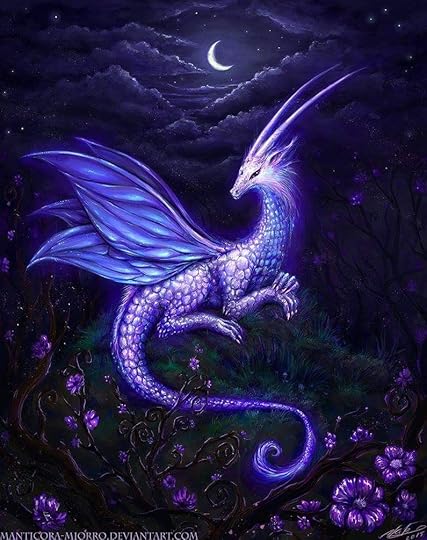Daley Downing's Blog, page 12
September 14, 2020
Hits and Misses: Revisiting the Past (With an Eye to the Future)

Good morning! Welcome to another dose of whinging about subpar reading experiences!
I remember saying not all that long ago that I really wanted not to harp on the negative too much in my blog posts; how I was okay with writing negative reviews if the target — I mean, title really warranted it, but I didn’t want to find myself wallowing in the gripe.
I can still see the point of that. (Really, I can.) However, I’m also realizing that there are benefits to evaluating why a style (or genre) tends to become so disappointing, and learning how to make (hopefully) better choices next time as a reader.
(It’s all part of this pandemic-instigated self-reflection I’ve been, er, wallowing in lately.)
Criteria #1: Just because I didn’t finish it then, doesn’t mean I have to finish it now.
Reasoning: I used to be the queen of DNF. It was far too easy to check a dozen books out of the library, read 20 pages, toss it aside, and return it to the drop box. Eventually, I got fed up with feeling, well, fed up. So, I vowed to change my pattern. If it hasn’t caught me before page 100, then I assume it won’t. But, until then, let’s give the story a chance.
Counter-reasoning: If I’ve spent at least an hour/reached page 100 without becoming involved, chances are…I never will, and I shouldn’t feel guilty about throwing in the towel.
Example #1: Wildwood by Colin Meloy and Carson Ellis
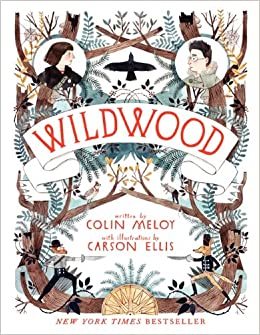
This is the start of a juvenile fantasy series I’d walked past many times while shelving. So I finally picked up the trilogy, and began reading the first book almost right away. Before I was very far in, it hit me: I’d read this before.
Why did I remember so little of it, though?
So, I kept going. Well before my benchmark of 100 pages, my question was answered: I must not have finished it…because it’s boring and nonsensical as hell.
The action begins in the very first paragraphs of the first chapter, with the protagonist and the major conflict introduced in basically the same breath — 12-year-old Prue is watching her baby brother being carried away by a group of crows. Just…what?? On the one hand, it’s such a startling opening, that you feel you have to keep reading to find out the whys and the wherefores.
On the other, though…as you proceed and the nonsense just builds up, without being dispersed… You will forgive yourself for selecting the “step away” option.
And “Wildwood” really checks all the boxes for me in this regard. While I’m not opposed to action starting early in a story, if this action isn’t tempered with at least some background or more information about the characters or setting, then I get easily frustrated and pushing forward doesn’t really feel worth it.
This novel is absolutely the latter. As the 500+-page story progresses, we get more and more names and faces and places thrown at us, but very little explanation as to just how this world works or why many of these secondary characters are important. As I kept reading, finding very little illumination, and discovering my wrists were hurting (yes, 500+ pages!), my desire to complete this tome waned.
I did make it to the last page…but I do feel it wasn’t worth my time and effort.
So, yes, it IS still okay to DNF.
Criteria #2: The cover is so intriguing/beautiful/unique, the story inside must be just magical/amazing/awesome.
Reasoning: Some of my favorite books became faves purely by having a cover that I couldn’t ignore.
Counter-reasoning: Marketing lies.
Example #2: “The Watchmaker of Filigree Street” by Natasha Pulley
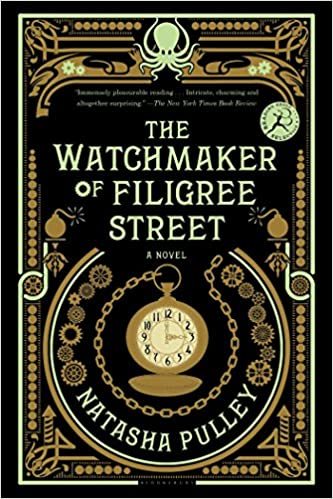
This is an adult fiction that tries to blend history with…I guess a kind of mysticism, and the overall effect is…confusion that also creates dullness. Which feels odd, because the blurb makes one think it’s supposed to be about time travel and Victorian London and blending immigrant culture with the natives, and it all just sounds…well, not dull.
But the writing tends to simply wander, and take a while to make relevant points, which meant I was quickly losing interest, anyway. And the hardcover’s font is thin and small and hard to read (especially when you live in a house with lighting from the mid 20th century), and this just adds to the “what the what?!” atmosphere.
I gave this…experiment till page 150, and when I at last opted to let go, there wasn’t an ounce of guilt.
It’s important to recognize when something just isn’t to your taste and move on, not feel the need to apologize for it. Not with something as subjective as art.
Criteria #3: Even if I didn’t care for several books by a particular author, if I REALLY liked some of their earlier work, I should leave the door open for liking their newest release.
Reasoning: Pretty clear.
Counter-reasoning: None, really.
Example #3: “The Eldest Curses” series by Cassandra Clare and Wesley Chu
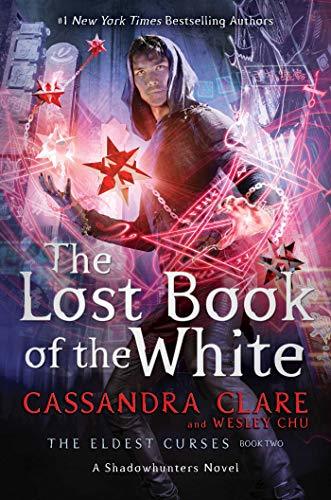
Back in the day, I LOVED “The Mortal Instruments” series by Cassandra Clare. The fifth and sixth books in the original canon fell flat for me, and I still disagree with the directions taken towards the end, but overall the story has a special place in my heart. The “Infernal Devices” prequel and “Dark Artifices” spinoff did literally nothing but bore me, which was a punch to the gut after my enjoyment of the early tales.
So imagine my excitement when I found out the latest Shadowhunters addition, “The Eldest Curses,” centers on the original characters; and while book 1 was sort of a prequel (set during “The Mortal Instruments”), the second installment picks up where the characters are NOW. We FINALLY get a proper sequel to the tale of Clary and Jace, Isabelle and Alec and Simon, and I am psyched to start on it! Reading this book will feel like coming home, I already know it.
It’s not that I specifically held out hope for this exact premise being executed and published within my lifetime, but… I won’t lie, it does feel kind of like a fiction miracle.
While I’ve had many more misses than hits in my recent reading history, I hold out hope that the scales will tip back in my favor.
Shouldn’t we all?

September 12, 2020
Yes, Our Reading Perspectives Do Change Over Time

On a totally separate note, I just discovered that the “new WordPress editor” is a thing.
Ahem.
Pardon me for a second while I run around screaming.
Okay, it turns out that the program itself isn’t awful to use. (So far, it seems…) It’s just that I have a very strong aversion to sudden change out of my control. That’s why I really like to control change when I can.
Hey, that ended up leading very well into the topic of this post.
A long while ago, I wrote a post about how our expectations or hopes for what we get from reading can — and often do — change either with our age or after certain experiences in our lives. I definitely feel I’m coming up to a new stage in this area.
After I also wrote a post about how it’s totally acceptable for adults to read YA fiction…here I am, wondering if I can really carry on reading YA fantasy.
And, yes, I do believe this has to do with the fact I’m now over 40. Because, although I write YA-appropriate fantasy myself, I am growing increasingly frustrated and/or bored by plotlines that revolve around love triangles during the fall of the oppressive empire.
But, I still get frustrated and/or bored by adult fiction that focuses too much on gory murder mysteries unrealistically solved within two days, or fluffy insta-romances between physically perfect people with dream jobs and all the latest tech.
So, the question doesn’t just become, What do I read next?, but also, What am I really looking for in a book?

Since the pandemic meant I was without access to a library for at least 2 months, I was forced to re-evaluate my reading habits earlier this year. I found affordable bargains on series I’d started but never finished, for whatever reason, and worked my way through them. And when I came to the end of that journey, I realized that my reading tastes have really altered.
I used to be a big content avoider. Trigger warnings were my speciality. I didn’t want to read depictions of abuse, graphic violence, or explicit explanations of trauma. But just this week, I finished “Transcendent Kingdom” by Yaa Gyasi, a novel that centered heavily on the narrator’s loss of a sibling due to drug overdose and her mother’s depression. It’s a heavy read, not much comic relief, and there are several long passages of deep reflection in each chapter. It takes determination to finish. And yet, I don’t regret reading it.
I’m also becoming more willing to try “timely topic” novels, which in the past I have avoided like the plague, because I don’t want an agenda (of any sort) shoved down my throat while I’m trying to enjoy a story. But I did find “The Vanishing Half” by Brit Bennett very interesting, despite its long-winded digressions throughout many of the chapters, creating a number of subplots in what, on the surface, is supposed to be about a light-skinned black woman who decides to pass for white in the 1970s. Whereas before I’d be skimming or outright skipping large chunks of such a novel, to get back to the “actual premise,” in this case, I thought the subplots were more engaging — and they were big on conversations about race and gender and how different things were in the mid 20th century from now. Very “hot button,” and I wasn’t instantly turned off.
I also seem to have developed more tolerance for books that meander and don’t get to the point right away. Even 6 weeks ago, if I couldn’t get into a title before page 25, I tended to just put it down and not bother again. Lately, I’ve really been stopping myself from DNF-ing. Partly because I have actually discovered the value in pushing forward and enjoying at least half of the book. But also because I want to spend my reading time as something relaxing, to be savored, no goals to meet, no rushing.
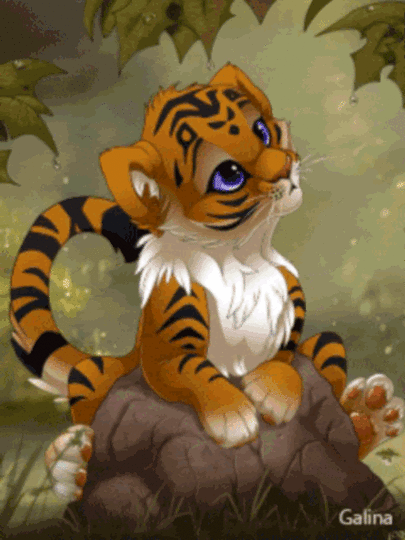
I’m also realizing I care less and less about what new releases are tapped to be super hot. It’s almost the reverse of jumping into the hype. I’ve been terribly disappointed by almost every single “you have to read this!!!” title I’ve picked up since 2018. Either the characters were all stereotypes, the plot recycled from other books/movies that did it better, or I just didn’t care for the writing style (purple prose, all show and no tell, and dozens of pages of unnecessary text are my worst enemies). And these trends have seemed to run rampant in publishing (at least in the genres I prefer) recently. So now, even if millions of other people are raving about it, I’m just going to be, “you do you, folks,” and not count on said title blowing me away.
Right on the heels of that is the fact I’m no longer putting much stock in others’ recommendations. Not that I want people to stop sharing their new favorites and promoting them — not at all! But I’ve accepted that I just am a finnicky reader, and while I’ll certainly continue to read others’ reviews, I’m not going to add every single new hyped release to my TBR. This attitude is actually quite freeing (for my wallet, too!).
But the downside to this is that I could quickly run out of new possibilities. So I’ve promised myself not to be too hard on authors I tried once and didn’t really hit it off with. I won’t shell out unlimited opportunities, but if their first book didn’t do it for me, maybe their second — or even third! — will. Even our favorite authors sometimes produce a work that misses our personal mark. So, I figure only allowing an acclaimed writer an hour of my time isn’t quite fair.
Well, that does it for me this time around! What about you? Have you noticed your reading preferences and goals change over time?

August 27, 2020
Some Uncomfortable Truths
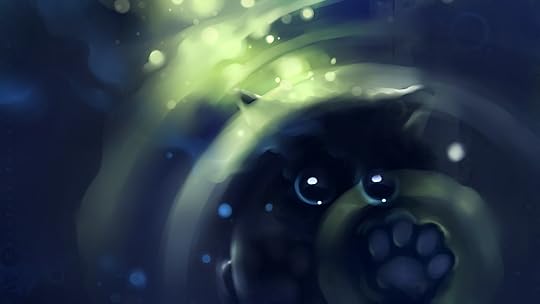
Good morning! For those of you hoping for a light and fluffy blog read – sorry, today, this isn’t it. There’s been a lot on my mind lately that I feel we, book bloggers, readers, and writers, need to talk about, and not all of it is pleasant.
In my traditional fashion, I will be discussing some hot button topics, throwing in random cute animal pictures in between, so that we can soften the blow, while still getting to the heart of very important matters.
Can’t say I didn’t warn you. So, here we go.
When I was younger, I read several novels tackling racism and civil rights, on breaking down the walls and how to start building bridges. I’m afraid my younger self has forgotten a lot of titles and authors; but I do remember the focus was on tolerance, leading to empathy, on all sides. Not just on demanding white people pay for what their ancestors had done to people of color. Sometimes the conversation only got as far as recognizing racism was real, and that it was wrong; maybe that was as far as those characters could go, based on the setting or the premise. But I still think that was a necessary step.
Developing empathy for suffering endured by people that you can’t completely relate to is crucial to increasing understanding and inclusion. I don’t see it as pity, nor is it condescending. Empathy makes us better human beings.
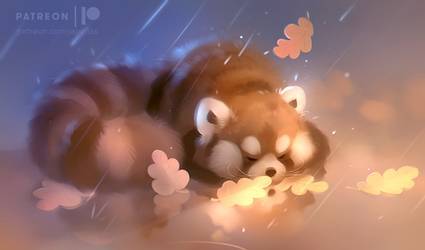
Here’s the vital other side of that coin: Too many people don’t seem to understand that ALL forms of prejudice are wrong. Too many people are still screaming about injustice, without admitting to their own faulty views.
Would you march in a Black Lives Matter protest, but feel very strange if your son or daughter brought home a significant other of a different race? Do you push for people who look just like you to read “important” books on racism — but only the titles written by someone who shares your exact perspective on the topic? Do you scream about rights for all, but wouldn’t give up your spot in the grocery store line to a disabled person?
I may be in the majority race in my country, come from a “respectable” background, economically and class-wise, have a college degree and work in a profession requiring some intellectual effort. HOWEVER, I have absolutely experienced prejudice. Because I’m autistic — meaning I’m “different” from many people — what’s a natural state of being to me may make others feel odd — for no reason other than it’s unfamiliar or out of their realm of experience.
So, the groundwork being laid, let’s get to the heart of this post:
Uncomfortable Truth #1: People of color can be racist, too.
In Misty Copeland’s autobiography (Life in Motion: An Unlikely Ballerina), she relates having a stepfather, a black man, who held very discriminatory views on Hispanics and Asian-Americans and Caucasians. She relates how she was aware of the subconscious racism in ballet, as she struggled to be awarded roles that were almost always performed by white women. But she also didn’t hesitate to give credit to the white people who appreciated her talent and helped further her career. And there is a definite tone in this memoir of recognizing that no one had the right perspective in this matter, and that views on race, color, and culture within this melting pot country are complex, and continuing to grow and change.
This is more true than the current gatekeepers on the discussion of racial relations want to admit. I’m really tired of reading novels and non-fiction that promote the theory that every single white person must be racist in some form, whether they’re aware of it or not. I shouldn’t have to be afraid of giving a diverse book a bad review because I genuinely thought it was poorly written. I didn’t like The Hate U Give, purely due to what I felt was a flawed execution of the plot itself, nothing to do with the tough theme it covered. The author’s second novel, On The Come Up, I thought was great, and gave it a glowing review according to my standards of character development and story cohesion.
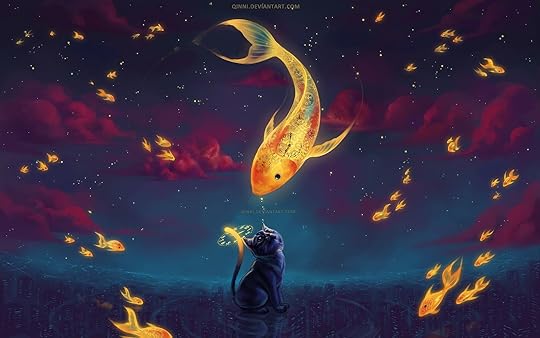
Uncomfortable Truth #2: Cancel culture is more dangerous than the thing it’s trying to cancel.
Just because an author is white, writing about white people, DOES NOT mean this author is racist. Jumping on social media and screaming that certain people need to be “cancelled” without having any proof that their point of view is problematic does more harm than good. And we really need to stop pushing the idea that it isn’t okay for natives of whatever group to celebrate their own culture.
In her amazing non-fiction title, Why Are All The Black Kids Sitting Together In The Cafeteria?, Dr. Beverly Tatum points out that “race shaming” won’t solve anything. She also touches on the often-overlooked fact that there are more than two races, and trying to paint all whites as racist, or all blacks as violent, all Asians as computer nerds, all Hispanics as drug addicts, etc., are equally harmful stereotypes — whether the stereotype comes from outside, or from within, your own community.
She also brings up the willingly-ignored truth that people need to be around their racial and cultural peers, and that not only is there nothing wrong with having a spouse, friends, acquaintances of your own ancestry group, doing so actually encourages a sense of pride in where you come from. To purposefully shut out other groups, or believe them to be inferior, is discriminatory. But if you’re, for example, a WASP who knows lots of other WASPs, that on its own isn’t the problem.
I shouldn’t have to apologize for being most familiar with British and European culture and history, since it’s also my own. This doesn’t mean I’m not appreciative of or cool with other cultures. Do I read books/watch movies and TV shows with diverse casts? Yes, totally. Is that all I read? No, because I like to mix it up.
Doesn’t a healthy combination sound more…well, inclusive?
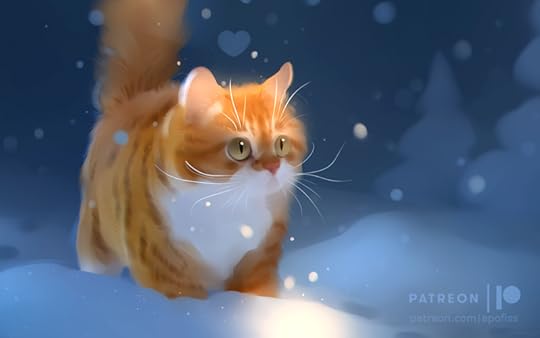
Uncomfortable Truth #3: Forcing diversity is inauthentic, and promotes division, not the opposite.
We’ve all heard the complaint — “Oh, look, it’s the token minority character.” Deliberately shoehorning in POC or disabled or LGBT characters does holler, “See how politically correct we are!” And it turns out this approach has backfired. Since many of us do have diverse relationships in our lives, we’d much prefer more natural and authentic representation. And we pretty much resent the notion that we “need” a group of (let’s be honest, mostly white, straight, abled, wealthy) powers-that-be telling us that “hate is stupid.”
I generally write middle-class white characters, but this is just because I know this culture firsthand, so I’m presenting a honest point of view. I do include characters outside of this group as well, and not to seem “woke,” but because it makes sense — I’m writing about an organization with international ties and members who are either immigrants or bi-racial. That simple.
Why aren’t we encouraging more Own Voices to increase everybody’s education on various ethnic groups? I’d never presume to “hijack” the story of a religion or nationality that I haven’t lived personally.
Nor would I want someone else to do the same to my own tale.
As far as we’ve come in this conversation, there’s still a long way to go.
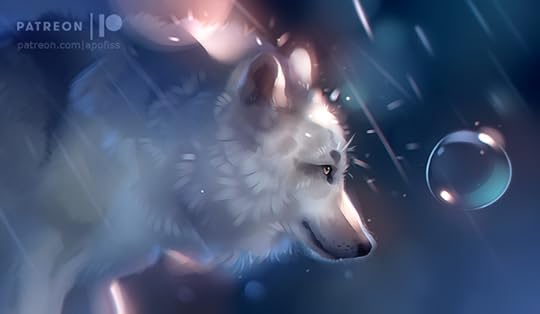
August 15, 2020
A Bookdragon’s Wish List
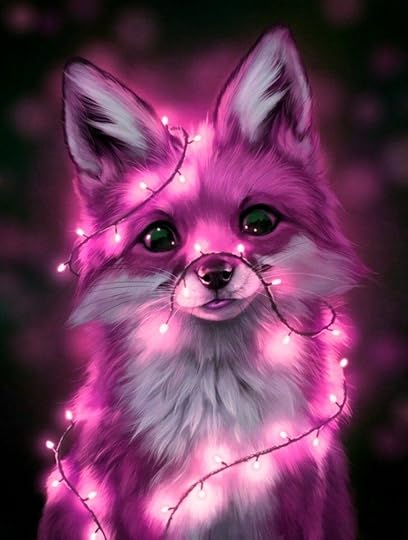
I don’t like to talk about my age. It’s not that I feel old. It’s that I don’t want to feel old if I accidentally reveal too many details that concretely set me in a particular decade of origin.
But at the moment, I’m making an exception, because yesterday I became The Meaning of Life, the Universe, and Everything.
Yes, that’s right, I turned…42.
Now, I’m aware that the notion I might suddenly be imbued with some amazing powers, status, or secret knowledge based solely on bearing this number is a fanciful one. But, hey, haven’t we all had enough reality for a while?! So let’s indulge in some daydreaming.
So, since I am ruling all for the next 12 months, what’s on my wish list? And of course, being a bookdragon, I will have very specific demands — er, “requests” regarding the bookish world.
Shall we get to it?
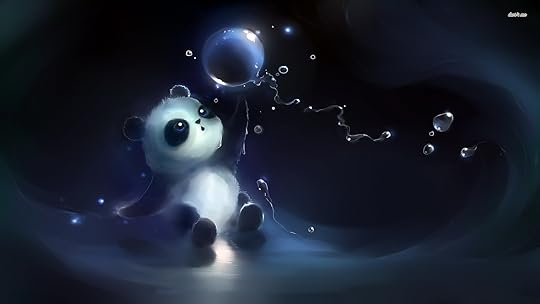
No stickers on the dust jackets of hardcovers. Like, ever again. I know, I know, some of them are supposed to peel off easily, but too many of us have suffered tragedies as a result of 95% of stickers not coming off well. So, they shall be abolished!
There will be a limit on how high books can be priced. I feel the complaints about the cost of new titles with my soul. There are SO MANY interesting publications that I a) can’t get from the library and b) can’t afford to buy myself. From now on, bookstores won’t charge more than $20 for a hardcover and no more than $12 for a paperback. Yes, that includes online retailers!
Summaries on the back or the inside cover will no longer be misleading. This is absolutely a trend in recent years. It’s frustrating. It means I go into a book expecting something completely different to what I end up reading. So, be on notice misleading-blurb-creators!
Novels will adhere to a strict limit of 400 pages or less. No one has the time, or the energy, to read those great whalloping doorstops anymore. And if people are forced to get to the point already in their storytelling, they’ll actually have to leave out all those extraneous subplots and purple prose and 15 paragraphs describing the bathroom antiques. Onward to a more satisfying reading experience!
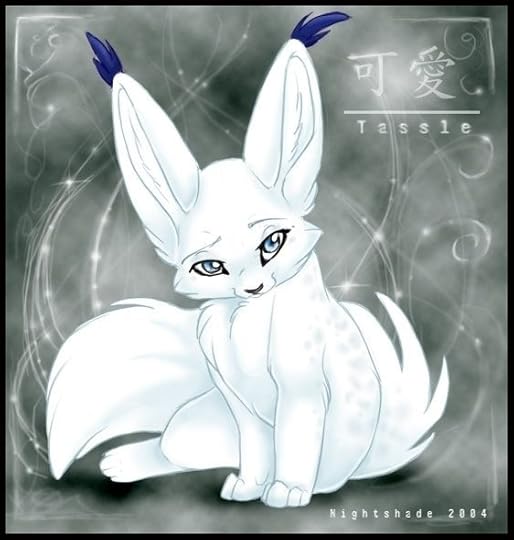
Overused tropes will become a thing of the past. Look, I love the archetypes as much as the next well-read creature. HOWEVER, we’ve all had to suffer through faaaaaar too many Chosen Ones, Special Snowflakes, Mary Sues (female and male), love triangles (even love squares?!), inner circle betrayals, and enemies-turned-friends. It’s time for some NEW stuff.
Diversity will just be part of the deal. No need for agendas shoved in our faces, or bandwagon topics shoehorned into a story that could actually do without them. Biracial kids or non-traditional families or a range of disabled characters will just exist, in the way the author intended.
Authors are finally using more unique or uncommon names for characters – let’s keep this up. All through the early 2000s, character lists read like The Biggest Baby Names of that decade. No wonder we couldn’t tell anybody apart. Nowadays, though, protagonists — especially in YA fantasy — are a lot more likely to be called Maisie and Judd, rather than Bella and Finn. I wholeheartedly support this.
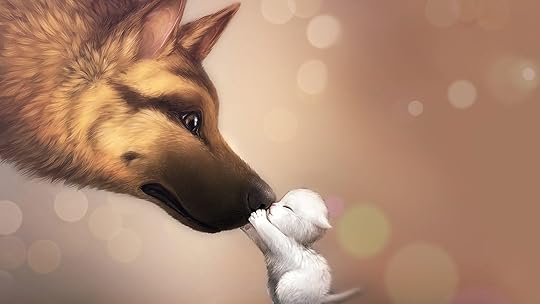
On the other side of this, fantasy names will be PRONOUNCEABLE. Thousands of wonderful fantasy premises have been ruined by the authors insisting their characters bear monikers that only Klingons can pronounce. While I’m at the helm, this is getting locked in a closet (and the key being melted down).
Romance can take a break. Yes, romance is a big part of many people’s lives, and for many readers, the romance in fiction can be very escapist and satisfying. BUT there are more things to life than romance — including close friendships, sibling bonds, and extended relatives that feel like nuclear family. And many of us experience these, too, and would like to see more of them in novels. So, here’s my edict that authors will focus more on friendships than first loves or rebounds for a while.
Covers will only be appropriate, beautiful and/or amazing, and relevant to the story underneath. No shirtless dudes or swooning women with more clevage than sense. No collages of primary colors that tell us zero details about the plot or themes. And no hard-to-read fonts that mean we thought the title was “This Nebulous Sea Serpent” but turns out to be “This Nefarious Seashell Poppet.”
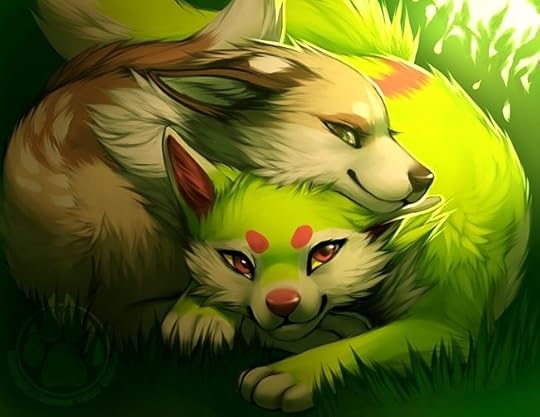
Happy endings will be much easier to come by. I once wrote an entire post about how I can’t stand the intense negativity and grimdark elements in almost everything anymore. It is possible for characters with a rough backstory or a hard struggle on page to still get the girl or boy, run off to a serene little farm and raise wombats. Here’s to peaceful conclusions!
History, whether it’s nice or not, shall be accurately presented. Sorry-not-sorry, folks, but attempting to rewrite history is in fact dangerous. We have to remember all the bad stuff, so that we can ensure it doesn’t happen again. I’m all for alternative histories, or alternative futures — I’d like to read more of both, actually — but we can’t determine that erasing the past makes the future better. So we’re maintaining warts and all.
We’re promoting graphic novels as real books. They already are real, I know this, but too many snobs still pshaw graphic novels. They’re a fantastic medium for kids learning to read, or those who struggle with reading (this goes for teens and adults, too).
Series that should have ended a while back…will be done. As much as I love some of these long-running tales, they can seriously wrap up and ride off to that lovely little wombat farm. We all have our favorites that just feel…stale now, and I think we can all agree that endings don’t have to be sad, or unnaturally prolonged. We can say goodbye, and survive afterwards.
All right, this does it for my proclamations! What would you add to this list for the year you turn 42 and have all-powerful bookish status for a year?
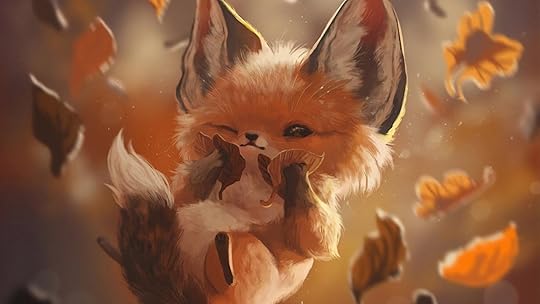
July 20, 2020
We Can’t Have All Show And No Tell
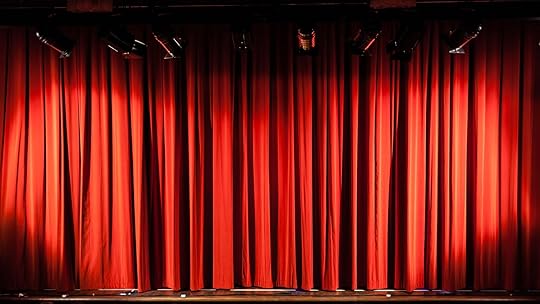
At the risk of sounding old: I remember when TV shows made sense.
I remember when the crime was committed on camera in the first scene, just without showing who-dun-it, and the director nicely found subtle ways to point out to the audience what clues the super-smart detective was finding. At the end of the episode, said detective would explain everything leading up to how he figured out who the criminal was, and the audience would either go, “I knew it!” or, “Wow, did not see that coming!”. Either way, it was satisfying.
Unfortunately, a while ago, TV went too far the other way, where the characters explained every single little detail, in painfully tedious and unrealistic dialogue, so that the audience wouldn’t be left behind. After we’d been yelling for a while that we were still perfectly capable of following along on our own, programs swung the pendulum too far the opposite direction. Now, so that they don’t tell us “too much,” we have television that’s visually stunning, but none of us knows what the hell is going on — nor do we care.
For me, this is the latest offender:
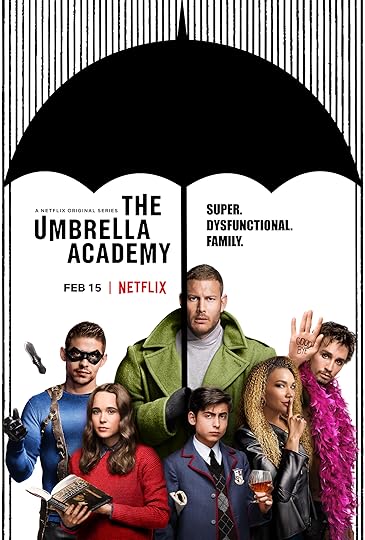
After bingeing the first season of Umbrella Academy, I have SO MANY QUESTIONS. The big guy in the middle of this promo shot really sums up how I feel right now. Just confusion on top of bewilderment and stuffed with sides of why-should-I-give-a-damn. There’s a new season premering quite soon, but I fear for my sanity if I tune in.
The premise is that a rich eccentric inventor takes in children born under mysterious circumstances — who also have superpowers — and trains them to basically be the X-Men. On the surface, it sounds great. But, by episode 3, I had numerous questions, that were left unanswered as the season progressed.
Such as:
Why did Reginald Hargreeves decide these kids needed to become superheroes? No background is given on how this guy made his fortune or why he cared enough about the world is enlist random children to save it.
Why did the children’s biological families allow this? So Hargreeves paid them — even with unexpected births, many people don’t just hand over their baby to some weirdo stranger waving around a big check.
The public knew that Hargreeves was using kids to fight crime — serious crime, like bank robberies — and somehow no one ever raised the issue of ethics? Child labor laws? Something about the way these minors were treated? What the heck?!
Why did these kids have powers? How? Where did they come from? It’s never explored.
The kids are raised by Hargreeves and Grace, an android mother (yes, you read that right), and an ape butler, who walks upright and wears clothes and talks. A-hem. Doesn’t anybody have any concerns or curiosity about that? Animal cruelty, anyone?! Along with general what-in-the-world-ness?
The season 1 plot focuses mostly on what happens when these adoptive siblings join together again after years of separation. They end up trying to prevent the end of the world, but — predictably — stuff goes awry. Even with such a familiar approach, there are still plenty of ways to make it engaging; but Umbrella Academy just misses the mark.
There’s such a lack of character development, I never got invested in seeing the protagonists succeed. I actually found myself wishing the apocalypse would kick their butts, and not vice versa.
And I could not put aside my issues with the amorality. A big one was the inappropriate relationships (either on camera or implied), between pairs with an age difference of at least 30 years. Right behind that was the number of murders committed by Number Five, who’s portrayed as a 13-year-old boy. The fact the Commission is playing God and no one — except the incredibly outnumbered Hargreeves siblings — is trying to stop them. At first it’s just annoying; by the end of the season, it’s disturbing.
Even when the concept is farfetched, there still have to be some ground rules, so that the fictional world makes sense. Umbrella Academy just doesn’t.
It’s the little things, that add up to major head-scratchers. For starters, in a story set in 2019 (says one of the characters!), why are there no cell phones and computers?
How were the kids world famous, but then suddenly forgotten about? Where are their connections? Military? Police? The closest we get is Diego’s (“Number Two”) half-hearted attempt to get back together with his detective ex-girlfriend.
We aren’t given any information about why they all left home and went their separate ways for a decade. We get very few details about what they’ve been up to in those 10 years. There are so many gaps in their history. At some point, Ben (“Number Six”) died, but we’re never told how, or when. We assume they must have all gone to school somehow, but the logistics of that remain a mystery. Various “missions” are alluded to, and the details of what happened on them never divulged.
The characters’ motivations aren’t logical. Allison keeps saying she needs to leave, to get back to her estranged daughter, but…then never leaves. Number Five “came back to stop the apocalypse,” but spends much of the season only making the end of the world more likely to occur. The “bad guy” is a red herring. The Commission and their goons — obsessed with chasing down Number Five for reasons never made crystal clear — just infuriated me.
All of this combined to leave my poor brains scrambled, and my heart very sour indeed.
We can’t have all “show” and no “tell.” We don’t have telepathy, we can’t read the minds of the writers and directors. We need clues. We need explanations.
We aren’t superheroes; we’re human, and we like to be entertained. By something that doesn’t tie us up in knots. Or leave us wanting so much more.
Why is that too much to ask for?
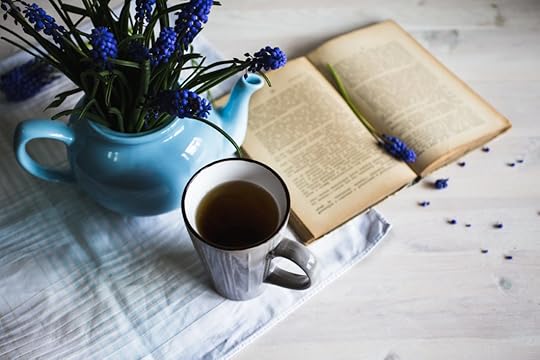
July 7, 2020
Harry Potter: The Invisible Moth’s Definitive Commentary
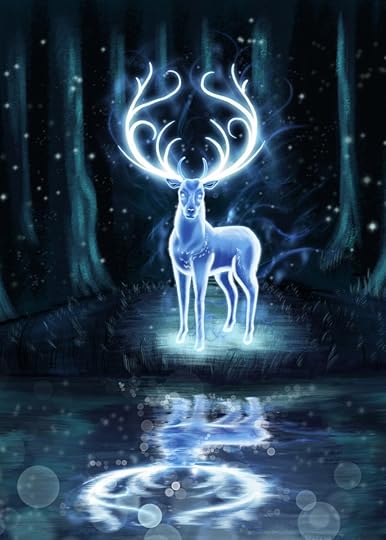
Okay, nothing like striking while the iron is hot! A few days ago, I posted on all the division that’s erupted in the Harry Potter fandom as a result of recent real world events regarding its author. As I was writing that post, I realized that, despite being a fan myself, I’ve never put together a comprehensive review of the series. But after touching on this topic during the weekend, the relevant points for this post started to come together.
I loved Harry Potter. Most of the plot, characters, humor, the more serious themes, and certainly the world-building. It takes all the familiar archetypes — the special orphan/chosen one, the wise mentor, the bumbling but loyal sidekick, the smart one, the pure evil villain with a Grand Scheme — and puts them into a world we recognize. Struggling with difficult teachers and classes, hanging out with your friends, playing a sport, fighting with your siblings, worrying you don’t really know loved ones, even sneaking out to do something you’re told not to do — take away the magic and fantastical creatures, and this is an ordinary child’s life. It’s why these books will live on, for quite a while, no matter the general public opinion of the author in Real Life.
Now, I will definitely admit there are certain plot holes, character arcs that could (should?) have gone in a different direction, and other aspects that bug me. Some of them can be shrugged off and don’t really impede my enjoyment of the particular novel or series itself; others start to irk me when I go back to them.
Get yourself a comfy sofa and a snack; this is going to be a long one.
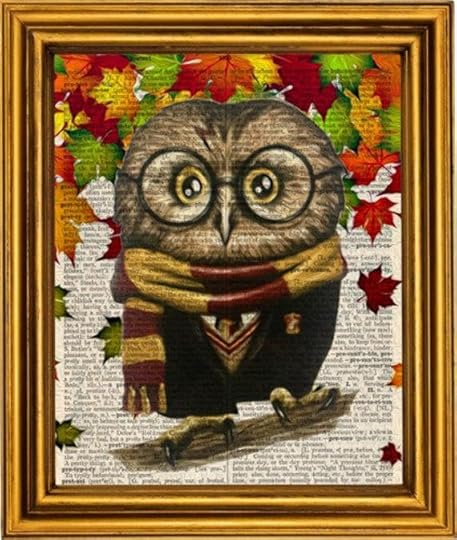
One: The over-expansive world development that ultimately falls flat.
Something downright amazing about books 1-3 is the world-building. We start with an orphan who has no idea of a magical legacy, and are taken on this incredible journey where we, along with Harry, learn about a whole world that’s as fantastic as it is dangerous. To begin with, most of the focus is on Hogwarts, but soon we get into Wizarding families, like the Weasleys; hear more about the divisions within this community and what allowed Voldemort’s rise to power; and some of the wonderful or worrisome mythical beasts and beings that also populate this realm.
In book 4, due to the Quidditch World Cup and TriWizard Tournament, this universe just explodes. What was already a pretty big premise gets rather enormous.
But this is also, sadly, where the series sets itself up to trip — and tumble down the stairs, landing in a heap of tangled hair and untied shoelaces. The fourth novel is when the page count significantly increases, when we get an idea of just how intense the conspiracy is to bring Voldemort back, and when the subplots begin to nearly overtake the main one. What was once primarily the tale of an unexpected boy wizard began switching to a world on the brink of civil war. It isn’t simply an ambitious shift; it’s almost impossible to pull off without any mistakes.
Many of us were beginning to miss the simplicity of the early books. Sure enough, The Order of the Phoenix confirms that the boy wizard is now being prepared to defend not only his own survival, but that of the entire community around him. And that’s where my enjoyment starts to fade.
Not completely. But The Half-Blood Prince hardly felt to me like the rest of the series. Too many new minor characters overshadowed the regular secondarys we’d grown attached to. Harry went from wanting to be a normal kid, despite his Chosen one status, to willingly spying for Dumbledore. And the twist ending that destroyed his mentor of the past several years — and set the whole series on a vastly alternate track — disappointed me, and made me slightly nervous about what awaited in The Deathly Hallows.
Here’s one of my most despised tropes in high fantasy: The meandering, long-lasting, booooooooorrrrrrrrrrring QUEST. It has very nearly ruined the entire genre of high fantasy for me, and I avoid it like the plague.
Cue Book 7 being 75% the above trope.
Is that me you hear screaming? Why, yes, yes, it is.
Not only was it disappointing, it felt like a copout. It made me wonder if Rowling was so tired of being badgered by fans that she was going to finish the series as quickly as possible, regardless of the fitting-ness — or not — of the ending.
All that incredible world-building from before just sort of drifted into oblivion. The fates of so many characters were thrown to the winds; we had literally no idea what happened to them during those 8 or so months Harry was in the woods.
It’s lame.
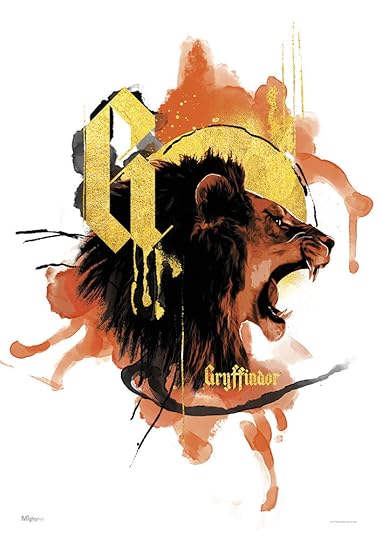
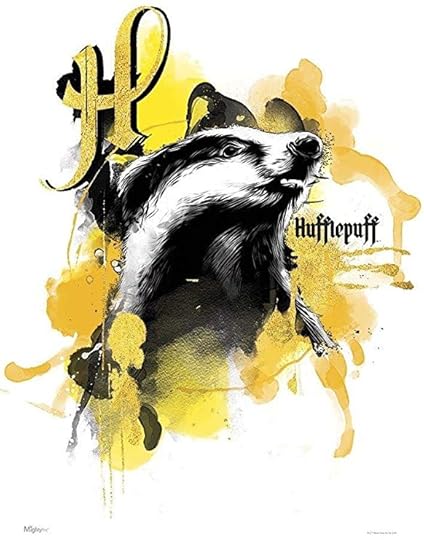
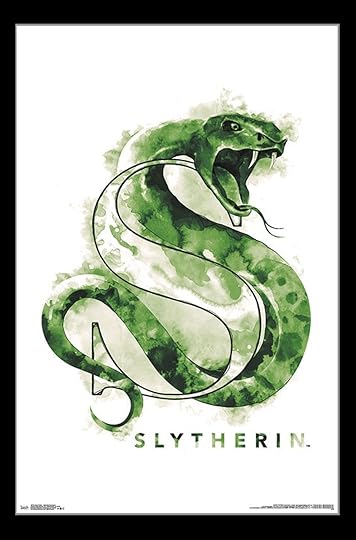
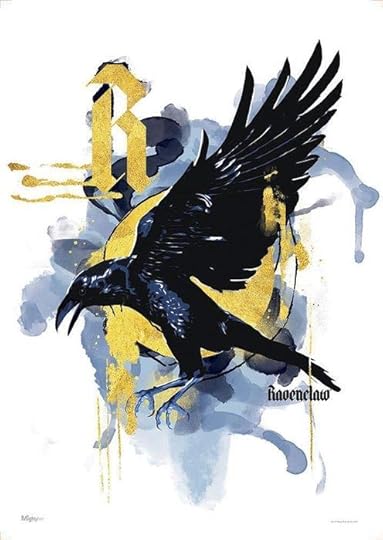
July 4, 2020
June 25, 2020
Long-Overdue Update On My Writing!
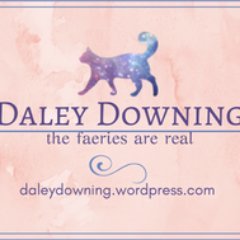
Does anybody happen to remember, hundreds of years ago, when I actually published books? After plunging into NaNoWriMo (and winning!) in 2016, I took an even deeper dive into self-publishing, and released my debut novel in 2017, followed by two sequels in the series, and a few unrelated short stories. The plan after that was to proceed with an idea I had for a standalone, companion novel to my fantasy series, and go forth with a contemporary (gasp!) story I really wanted to tackle.
Then, due to several factors that quickly spiraled out of my control, much of 2019 was a personal nightmare, and my publishing plans got set waaaaay back. Between all of that and all the crap hitting the rest of the world recently, I not only lost my original path, but by the time I found it again, the route looked completely different than it had. So, in spite of managing to release a second batch of short stories — including an abbreviated version of the contemporary I’d envisioned being a much bigger project — last year was rather uneventful for me as an author.
Here’s the good news: While falling and getting back up again is HARD and SUCKS, it can be done. So, I now, finally, have some actual UPDATES to share!
First: The manuscript for Fire and Wind is just about finished, apart from final edits. Then I’ll be starting on formatting — sooner rather than later — and here’s a preview of the amazing cover!
[image error]
The only unfortunate thing for readers when it comes to Fire and Wind is that this isn’t a good “jumping on point” regarding my fantasy series. It’s set between Volumes 3 and 4 of The Order of the Twelve Tribes, so if you haven’t read through Volume 3, many parts of it would be confusing. But it is my homage to a character White Fang helped me develop, which was originally supposed to serve a single, distinct moving-the-plot-along purpose, and it quickly turned into needing her own backstory and tying in with the rest of the series. So, for fans of my little “suburban fantasy” world, who have been awaiting more, yes, at last it will be occurring!
Here’s what else I’ve been up to:
Over the last couple of months, I’ve started the process of re-releasing, with updated covers and formatting, my already-published short stories and Volumes 1, 2 and 3. So far, my team and I have put together all the short fiction into one collection, with a new cover and new title. I is for Invisible, M is for Moth contains all the entries from Dreamings and Muses and How To Be A Savage, available in paperback and ebook (on Amazon and Barnes and Noble). The full collection was my first successful digital upload, a result which may or may not have left me a mess of flailing puddle on the floor for a day or so.
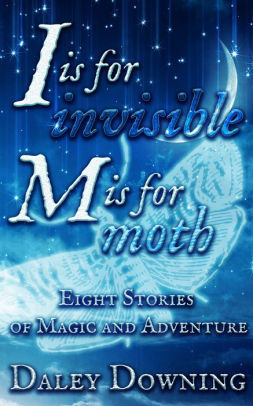
Ahem.
Anyway, the separate collections are still available on Barnes and Noble as well, and the goal is to have ebook editions of the originals uploaded (finally), too. For anyone who already has the originals, the stories in I is… have not had any changes made to content. The stories remain the same.
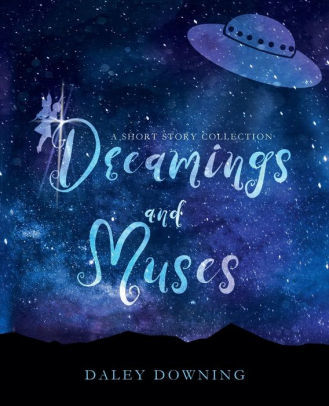
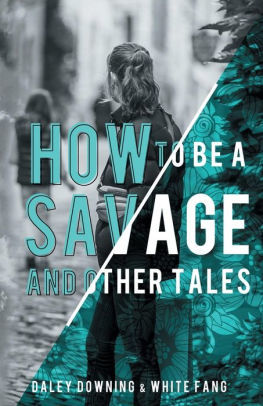
Other announcements:
The new covers and formatting for Volumes 1, 2, and 3! Again, none of the manuscripts have been changed, in terms of story, so the plot and characters you read back in 2017-18 are the same as the first editions. The major difference is in the aesthetics — it cleans up some niggling little things about the text that bothered me (basically, I wanted it to look “fancier” and “more professional”), and the cover designer felt that way about the art. Here is the new look for Volume 1:
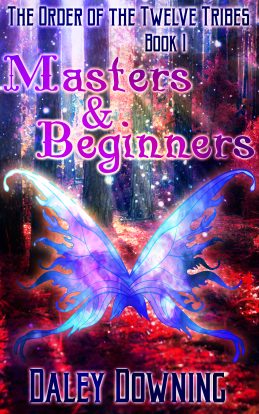
For everyone who already owns the original editions of Masters and Beginners, Rulers and Mages, and Healers and Warriors, as I already mentioned, no sneaky alterations to the tales themselves have happened, and these books remain canon. There will be digital versions on sale of all of these in the very near future (in the case of Volume 1, there already is!). For those of you who repeatedly asked about ebooks, thank you so much for your patience! It turns out technology and I have a love-hate relationship, and some aspects of indie authoring proved more difficult than I anticipated, hence the delay.
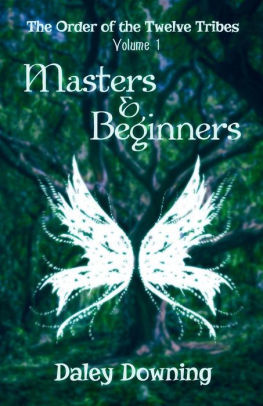
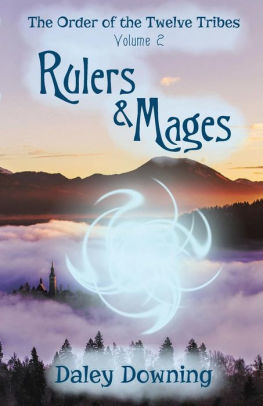
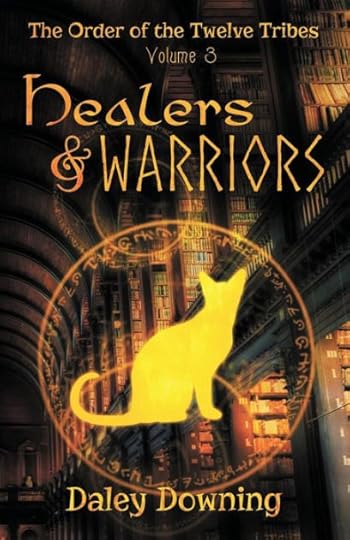
These are the major things going on right now, and I’m happy to be able to share them! To all of you who have had my back all this time, no matter the constant shakeups in what should have been a straightforward publishing schedule, to all of you who remain excited to see what I put out next, whenever it arrives, THANK YOU. Having such a network has meant soooo much in the past 16 months — well, since the very beginning — and definitely helps make this life worth it, when the struggle feels too big.
Toby concurs.
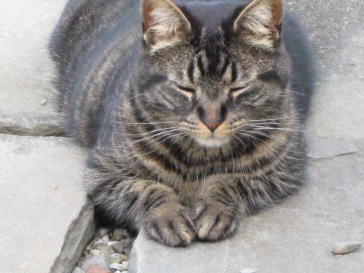
June 7, 2020
Here’s My Two Cents
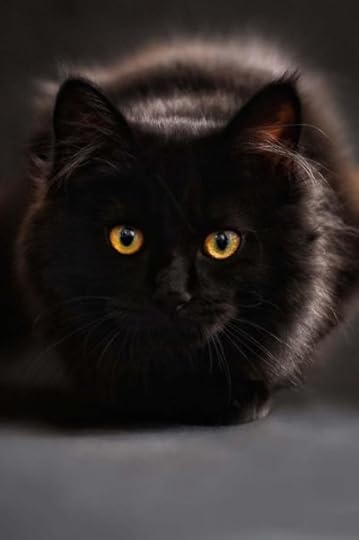
I have a million things I could say about the current (rightful) unrest happening in our country and being reflected around the world. But I really don’t think I’m the right person to be saying it, and others have said it all much better, and more appropriately. But this is what I can do, and will do — here are some under-recommended recommendations for reading, and viewing, to help inform, and inspire, not just now, but all the time.
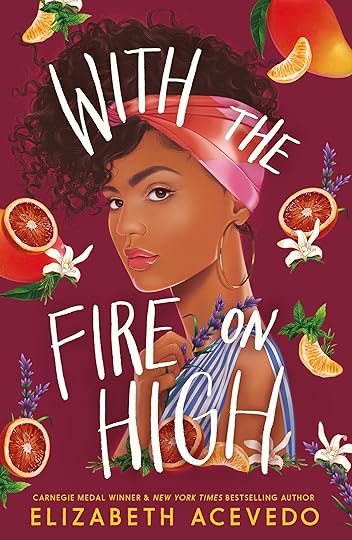
With the Fire On High:
Full disclosure — this wasn’t completely my cup of tea, purely because I am not the biggest reader of contemporary fiction. But this is a great story about the struggles of a teenage mother, and her desire to keep alive her dream of cooking professionally. With the Fire on High doesn’t shy away from addressing the stigma of trying to finish high school while raising a small child — and also provides hope for the future, even in this situation. This is absolutely an important novel, and I think it should be widely read.
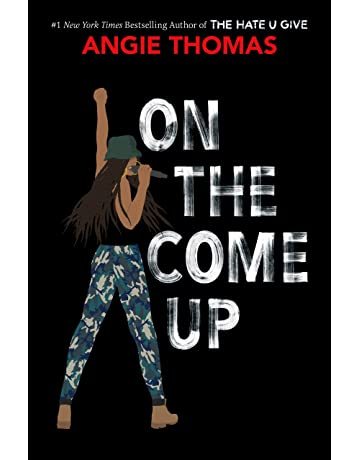
On The Come Up:
Everybody’s still talking about Angie Thomas’ debut novel, The Hate U Give, but her fantastic second release is sadly out of focus. For someone who really didn’t care for the writing of the former, I loved the style of the latter. The text and the message, the story and the real-life topic, are easily woven together here, and On The Come Up feels so natural and from the heart. If this isn’t already on your TBR, it needs to be.
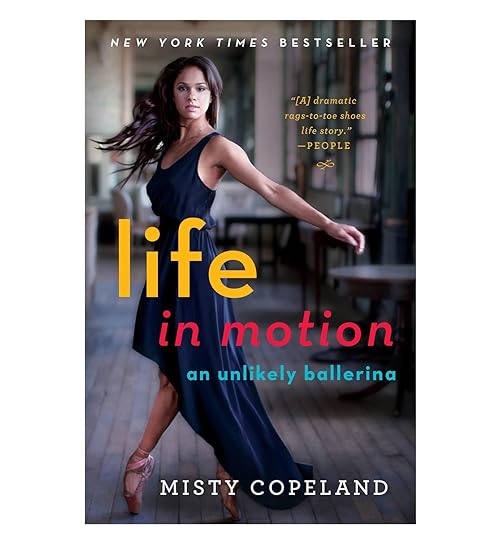
May 23, 2020
The Wrong Kind of Book Hangover
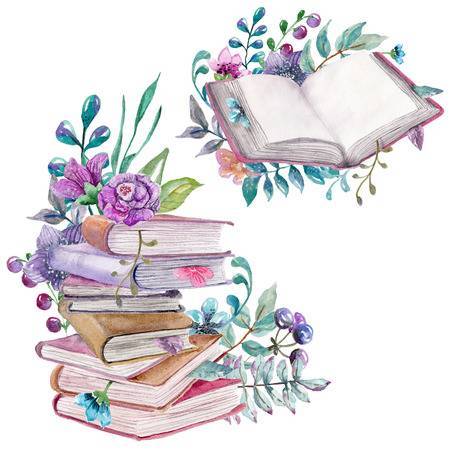
I’m sorry, everyone, but I need to go on a full-blown, let-down-bookdragon whinge.
The other night, I was reading the last book in a series I recently realized I’d never finished. Quarantine meant I couldn’t just put in a hold request at the library, so I found a coupon for Barnes & Noble and placed an order. As I re-read the first, and second, and third books, along with details coming back to me, I also began to get an inkling of where the plot was going and how it might end. Usually this is the most exciting part, as any bookdragon will tell you. Anticipating that moment your ship, er, ships. Figuring out before the characters do how they’re going to defeat the bad guy. When you guess who the last-minute rescuer is going to be.
All those lovely tickles of delight can oh so quickly flip to uncomfortable wriggles of disdain when it hits you that the twist will be something unfitting.
Yup, it was one of those.
Not wanting to believe it could be true, I kept reading.
I should’ve saved myself the heartache.
And now I just feel like: What was the point? The author wrote this charming, witty, enjoyable novel, that then had a slightly less witty, still fun, still enjoyable sequel, and then the third indicated a bigger, deeper, plot…and then before the fourth had even reached its conclusion, the whole thing was falling apart. WHY?!
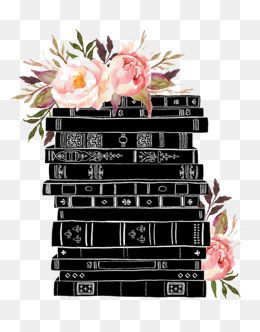
I legit don’t understand how this happens. It’s like the authors stop caring about this world they’ve created, and just let it implode. I can understand knowing when something’s done, and being ready to move on to a new project. But why throw in the towel at the critical juncture? Isn’t it all the more vital to craft a series ending that suits everything that came before?
As a reader, I just find it infuriating. I mean, I’ve just invested literal dollars and time and emotions into reading four books that I expected to provide me with a nice, relaxing escape from lockdown. Now it feels like the halfway mark in that fourth book was just sitting there, rubbing its devious hands together and cackling, waiting to destroy me. In a very bad way.
I very much have the wrong kind of book hangover. I got gypped. And now I desperately want to read something that gets me out of the pit, that puts me back on track with beloved characters and feels I can trust not to stab me in the back. I foresee a re-reading spree coming on.

But then I’ll be stuck with the dilemma that immediately follows a re-reading spree: What new thing do I attempt next? Do I even have the fortitude for anything new after all the previous anguish and loss?
No, I’m not being overdramatic!
Thoughts, anyone? How do you usually get over bookish disappointments?

Daley Downing's Blog
- Daley Downing's profile
- 36 followers


